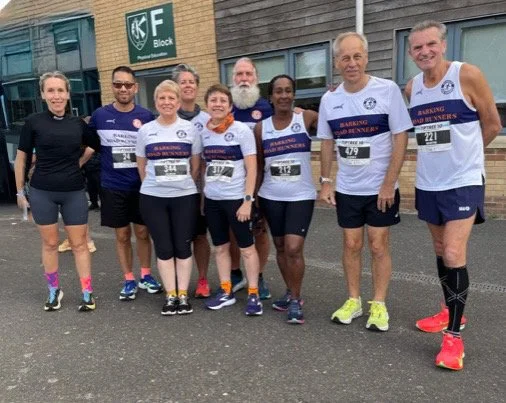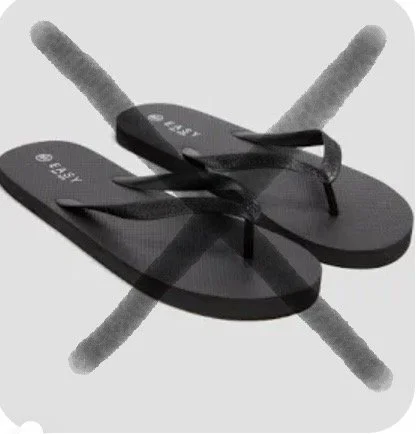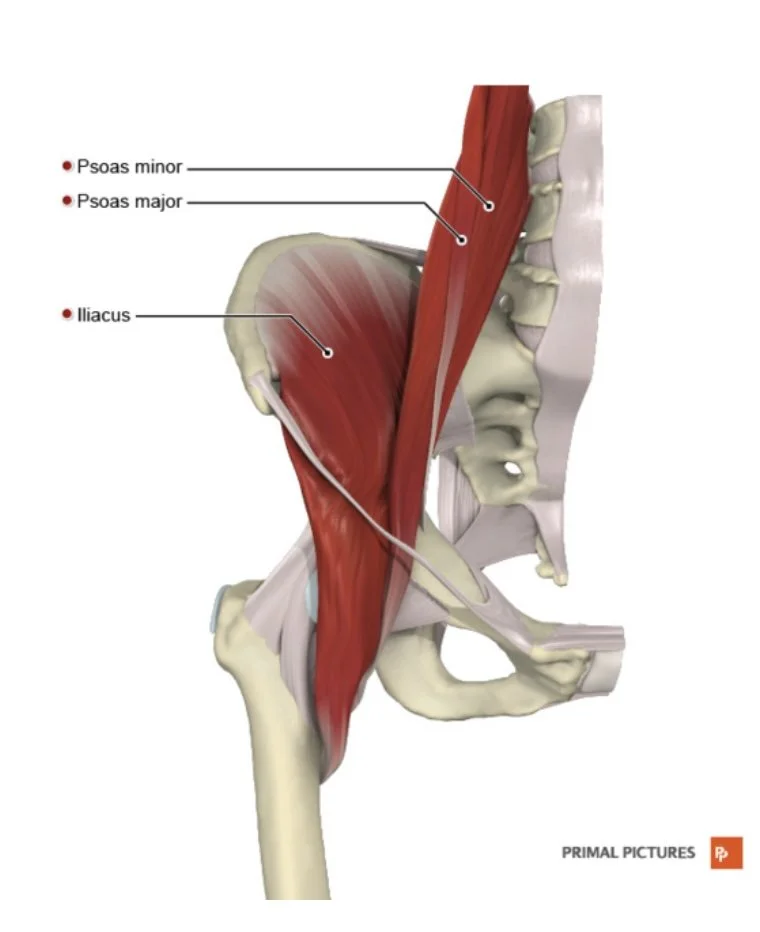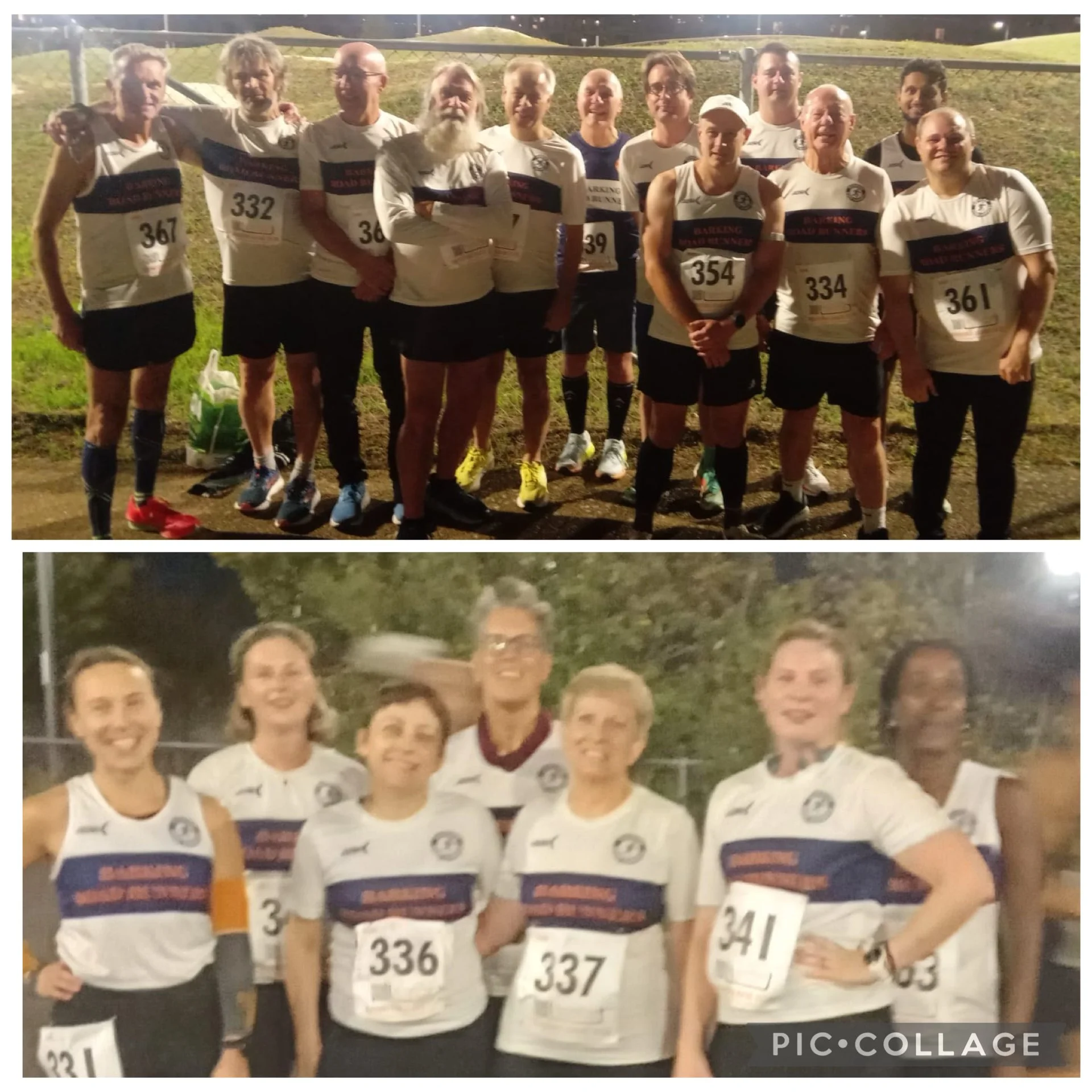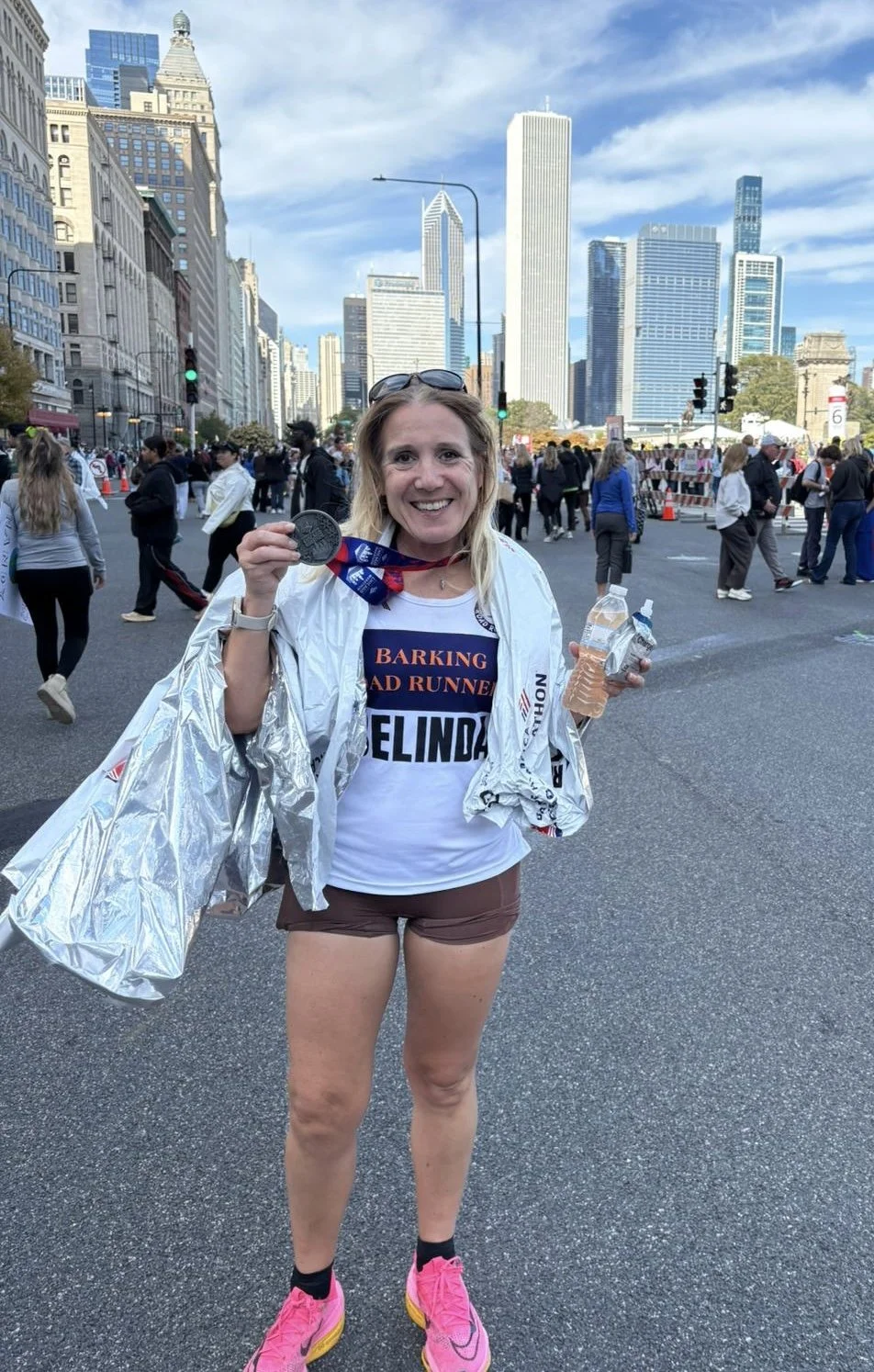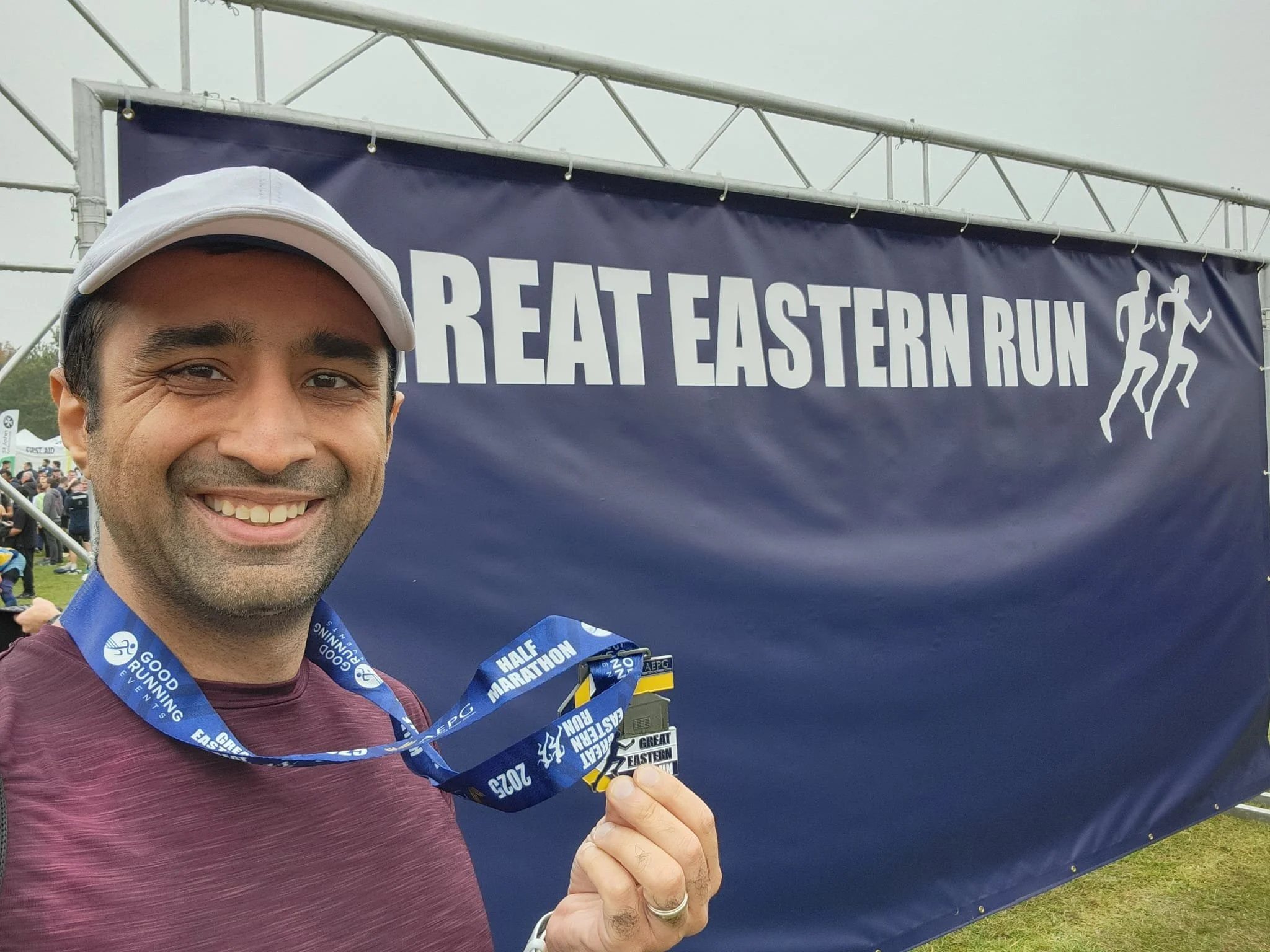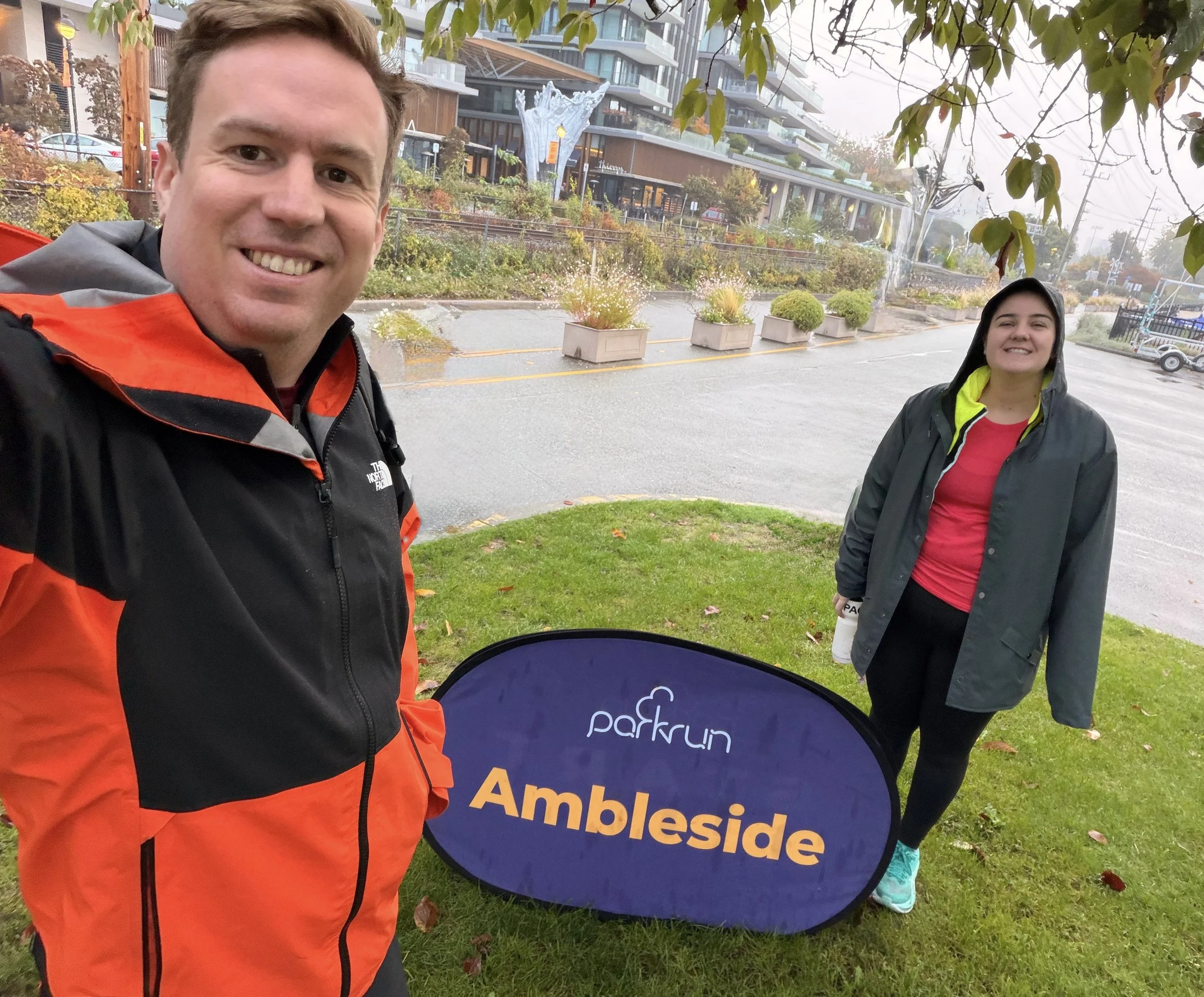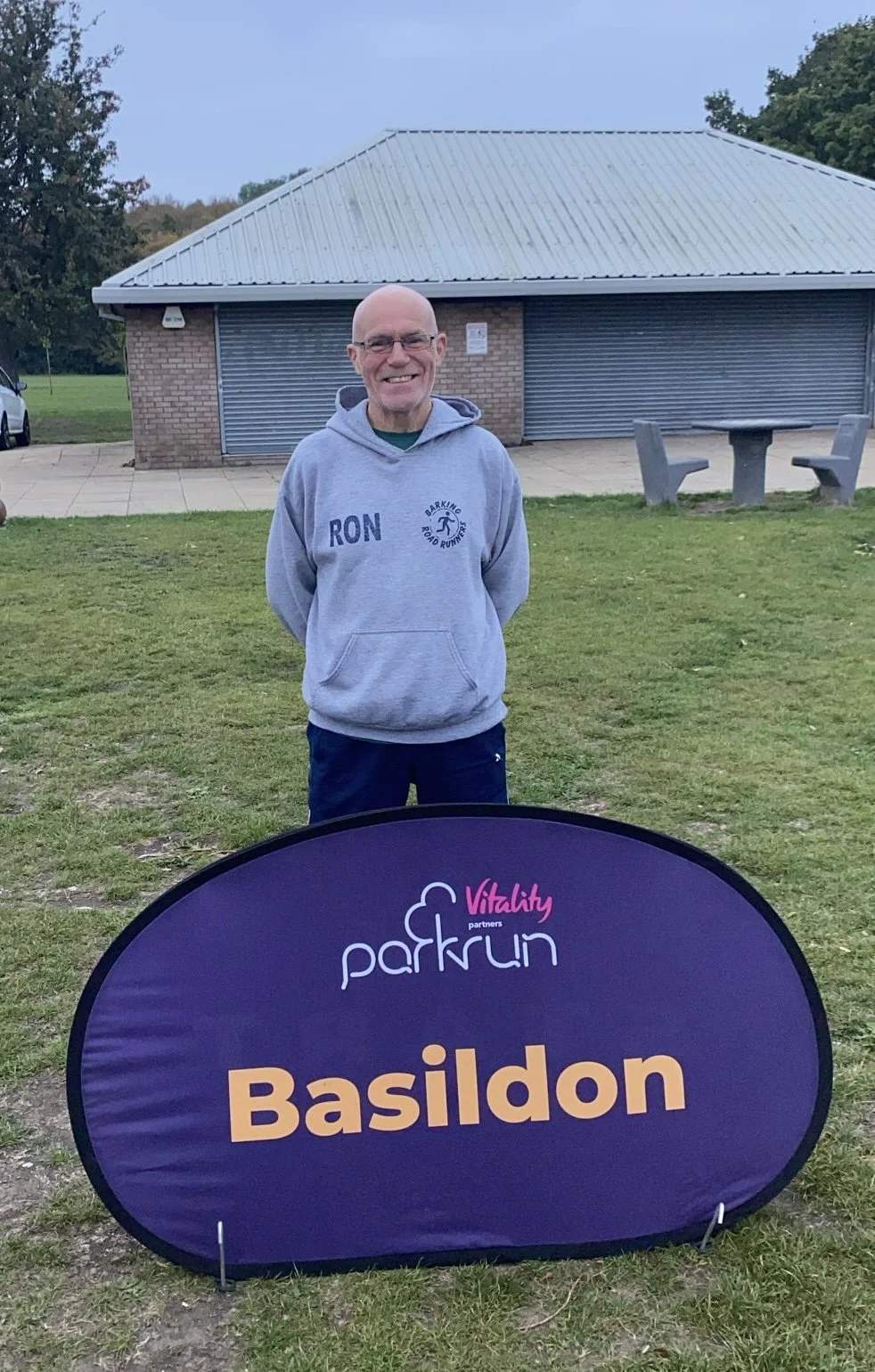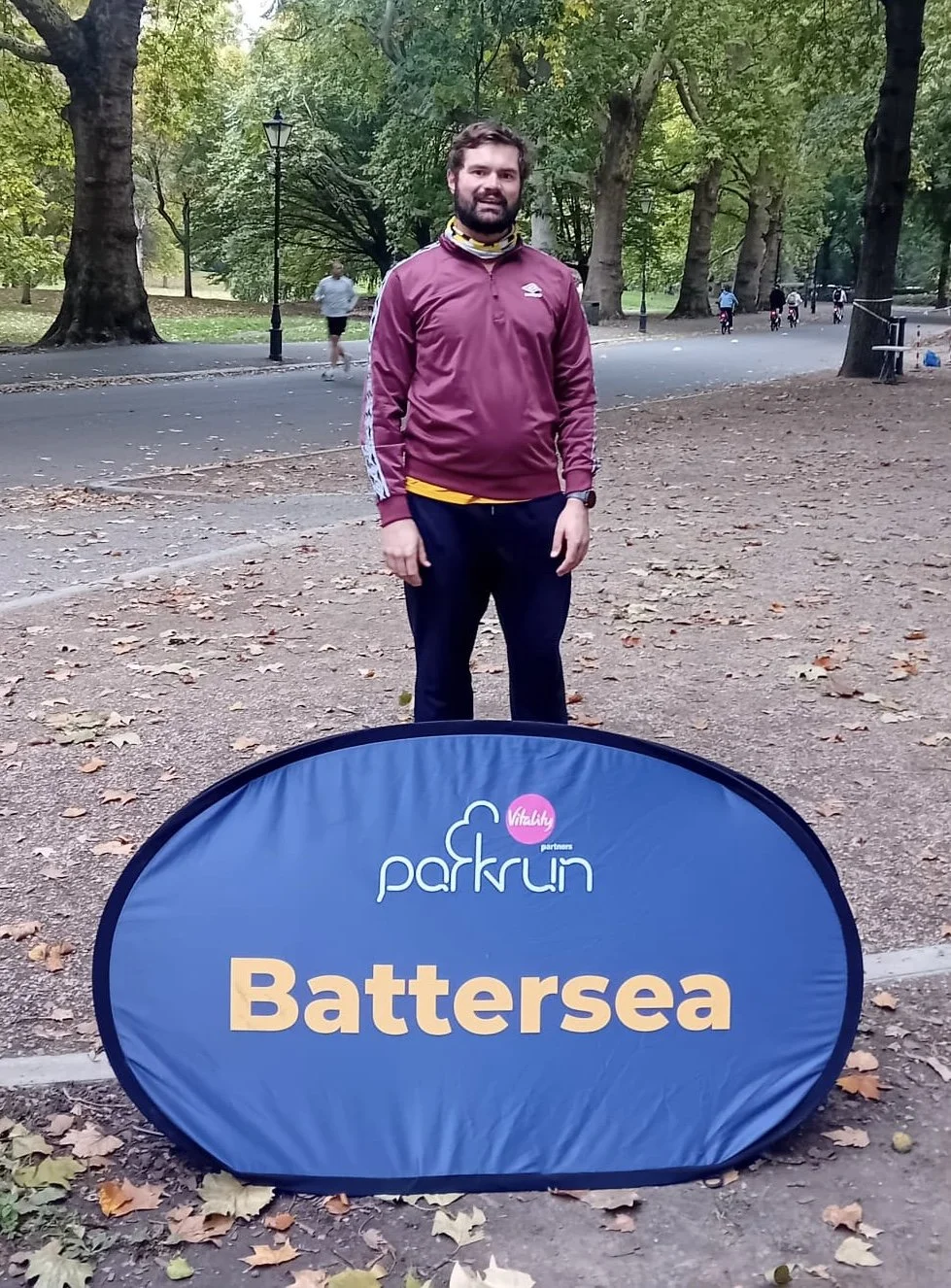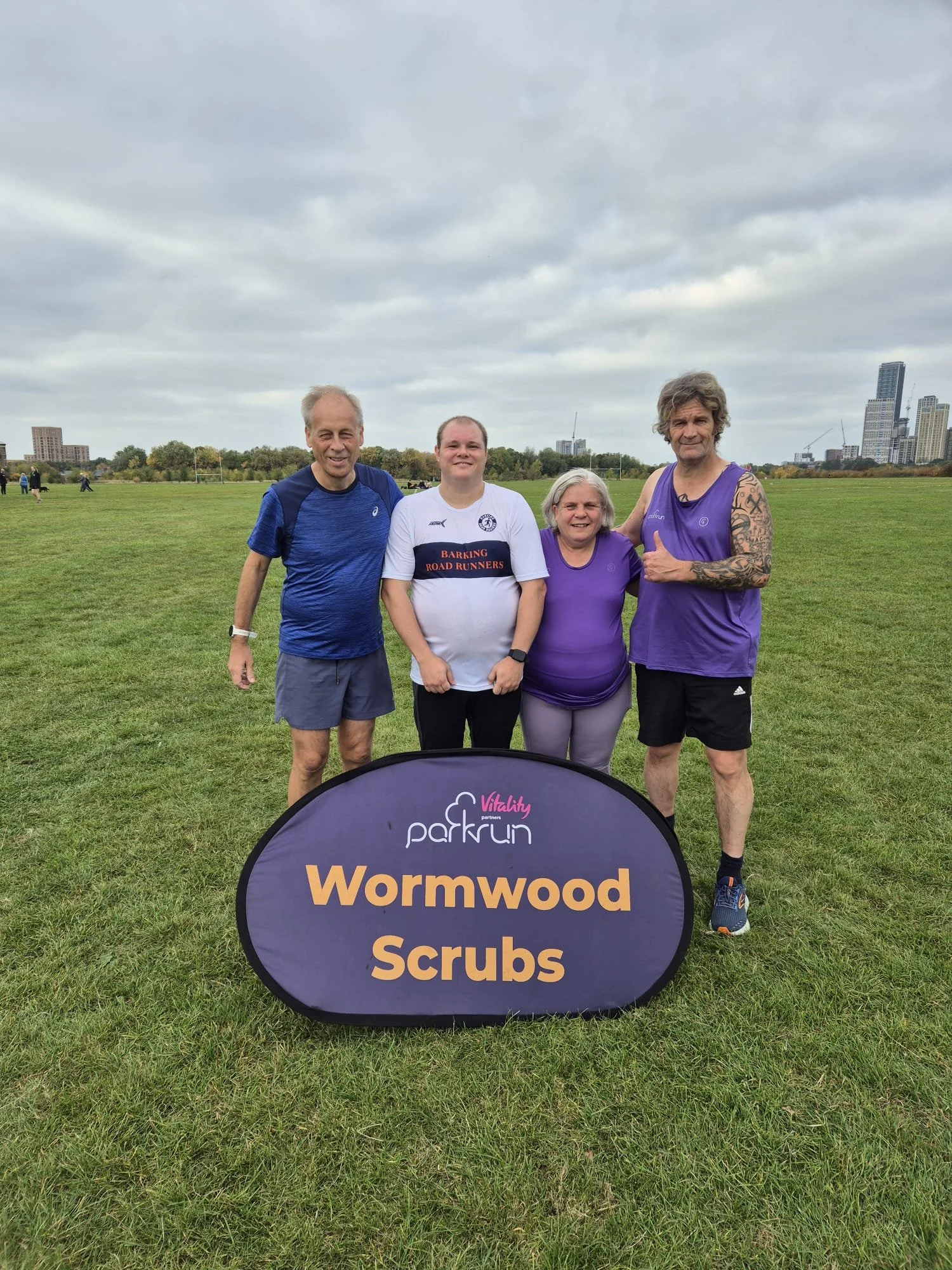BRR Blog - 13 October 2025
Hi there, Road Runners
It’s been a busy week of running for Barking Road Runners. We had the first race in the 2025-26 Chingford League competition at the Velopark in Stratford on Tuesday, followed by the Tiptree 10, the last race in the 2025 Grand Prix series on Sunday. Plus there were lots of other races, at home and away. All the details in Greg’s Race Report, below.
There’s not long to go until we stage our own Chingford League race at Eastbrookend Country Park, on Saturday 1 November. Thank you if you have already stepped forward to volunteer, or confirmed that you will be running. In either case, your contribution is very much appreciated.
Best Foot Forward
Flip flops - a flop for your feet?
You might invest in top-quality running shoes, but what about the pair you slip on for your non-running activities? For runners, everyday footwear can quietly undermine all the benefits of smart training and expensive trainers. Shoes that lack proper support or don’t fit well can lead to sore feet, tired legs, and even injuries.
Why does it matter? Podiatrist Miguel Cunha notes that your feet are the foundation of your body. If your casual shoes fall short on support, stress travels up to your knees, hips, and back. For those who log plenty of miles running, that extra strain can result in slower recovery and persistent aches that make your next run uncomfortable.
Some footwear choices are particularly problematic. Flip-flops encourage awkward toe gripping, which tightens the arches and calves. High heels shift your weight forward, increasing pressure on the forefoot and spine. Old, flat trainers or worn-out slip-ons can negatively affect your joints and walking pattern. Even if only one shoe feels slightly off, you may start favouring one leg—disrupting your balance.
How can you tell if your shoes are causing problems? Look for uneven wear on the soles—this often signals collapsing arches and feet rolling inward, which can lead to conditions like plantar fasciitis or Achilles pain - ouch!
So, it’s important not to focus solely on your running shoes. Choose daily shoes that fit well, cushion your feet, and provide proper arch support. It might be that you have some running shoes set aside for non-running activities, if they are supportive and comfortable. Your body—and your next run—will benefit from it.
Boston Qualifying Controversy
The Boston Marathon’s introduction of a non-binary division in 2023 has sparked a complex debate about inclusivity and fairness. The division was created with the best of intentions: to offer non-binary athletes an opportunity to compete according to their gender identity, providing a more welcoming environment for all runners. The qualifying time for non-binary athletes was set at the female qualifying time on a temporary basis, while further evidence of non-binary times was gathered.
However, controversy has arisen as research by Marathon Investigation’s Derek Murphy suggests that some runners may be using the category to get around the tough male qualifying times for the race. In particular, US runner Peter Kwayu has drawn scrutiny for registering in the Boston Marathon's non-binary division. Murphy’s investigation found no evidence that Kwayu identifies as non-binary outside of this entry and the 2024 Chicago Marathon, the finish time at which was used to secure the Boston Marathon place. In other competitions, both before and after, he has registered as male, despite previously and subsequently registering for races in the male, even when a non-binary category was available.
As a result, the Boston Athletic Association (B.A.A.) is now facing pressure to scrutinise and potentially refine its policies. The goal is to ensure that only those who genuinely identify as non-binary participate in the division, balancing fairness with the marathon’s spirit of inclusion. This ongoing debate highlights the challenges of adapting traditional sporting events to a more diverse and accepting society.
In the meantime, Kwayu’s entry is legitimate under the rules as written, but it does call into question a system that allows a runner to change their category where they would otherwise fail in another.
Coach Ban
No, not one of your BRR Tuesday night track coaches. UK Athletics (UKA) has imposed a three-year ban on Andrew Young, the former coach of Laura Muir, following an investigation and disciplinary process by two independent panels. Both panels found Young guilty of serious misconduct, concluding that his actions fell far short of the standards required of licensed coaches.
In September 2024, a UKA Disciplinary Panel examined 39 separate charges, upholding nine proven either fully or in part with seven particularly serious.
The investigation revealed that Young repeatedly prioritised performance over athlete welfare, ignored medical advice, and used manipulative and coercive tactics. Notable incidents included compelling athletes to compete against medical recommendations, threatening exclusion from training or competitions for non-compliance, and emotionally undermining athletes who expressed injury concerns. One especially concerning episode saw Young driving recklessly with an athlete after a disagreement and then abandoning them at the roadside, showing disregard for their safety and wellbeing. The panel also criticised Young for interfering with athletes’ nutrition, providing advice despite lacking qualifications and in direct contravention of UKA guidelines.
Young’s conduct was judged to breach core coaching duties, which demand the welfare and safety of athletes be placed above performance, and require coaches to act with dignity and respect. Consequently, his coaching licence was revoked for five years from April 2023, with the possibility of reinstatement only after completing rehabilitative training. Although Young appealed, an independent panel upheld the findings but reduced the ban to three years. The identities of the athletes were not disclosed, but Laura Muir issued the following statement:
‘I have chosen to waive my anonymity and confirm my involvement in this case. I fully support the decisions reached by both independent panels and I am grateful that the process has been followed through so thoroughly. I want to thank those who came forward and those who contributed to the process — it has not been easy, but it was necessary.
I am now focused on the future, looking forward to the next few years of my career, and putting this difficult chapter firmly behind me.’
A to Z of Running
Episode nine in the A-Z of running, and this week it is brought to you by the letter ‘I.’
Interval Training: A workout method involving alternating periods of high-intensity running and recovery (low-intensity or rest). Used to improve speed, endurance, and cardiovascular fitness.
Injury Prevention: Strategies and practices (like stretching, strength training, proper footwear) aimed at reducing the risk of running-related injuries.
IT Band (Iliotibial Band): A thick band of connective tissue running along the outside of the thigh from hip to shin. Commonly associated with runner’s knee and lateral knee pain.
Insoles: Inserts placed inside running shoes to provide extra support, cushioning, or correct biomechanical issues.
Impact Force: The amount of force exerted on the body when the foot strikes the ground during running. Managing impact force is key to injury prevention.
Incline Running: Running uphill or on a treadmill with an incline setting. Builds strength and improves cardiovascular endurance.
Ironman: A long-distance triathlon race consisting of a 2.4-mile swim, 112-mile bike ride, and a full marathon (26.2 miles). The running portion is the final leg.
Impingement: A condition where soft tissues are pinched during movement, often causing pain. Can affect runners in areas like the hip or ankle.
Isometric Exercises: Strength training exercises where the muscle length doesn’t change (e.g., planks). Useful for core stability and injury prevention in runners.
Injury Rehabilitation: The process of recovering from a running-related injury through rest, physical therapy, and gradual return to activity.
Inversion (Foot): A movement where the sole of the foot turns inward. Excessive inversion during running can lead to ankle sprains.
Intrinsic Muscles: Small muscles located within the foot that help with stability and balance during running.
Isotonic Exercise: Exercise involving muscle contraction with movement, such as squats or lunges—important for building strength.
Impact Absorption: The ability of shoes or body mechanics to reduce the shock from foot strikes.
Intensity (Training): A measure of how hard a workout is, often based on heart rate, pace, or perceived effort.
Imbalance (Muscular): Uneven strength or flexibility between muscle groups, which can lead to inefficient running form or injury.
Iliopsoas: A deep hip flexor muscle group (iliacus + psoas major) involved in lifting the leg during running. Tightness here can affect stride.
The Iliopsoas muscles
Greg’s Race Report
Busy week for Barking Road Runners this week with several league and individual races.
First Chingford league race of the season for Barking Road Runners was a 5k race at the Velodrome, Queen Elizabeth Park. The race was switched from the Redbridge Cycle track due to the unavailability of the venue. BRR had a good number of members running on the night both men and women. First BRR woman was Jess Collett followed by Debra Jean-Baptiste, Sian Mansley, Joyce Golder, Emma Paisley, Alison Fryatt and Dawn Curtis. For the men first BRR finisher was Stuart Mackay followed by Daniel Plawiak, Martin Page, Jason Suddaby, Mark New, Chandru Thayalan, James Sheridan, Doug King, Gary Harford, Barry Rowell, John Lang, Steve Colloff, Rob Courtier, Dennis Spencer-Perkins and Darren Graham.
BRRs women and Men at Chingford league race 01
The final Grand Prix race this year for BRR was the Tiptree 10-mile race. Runners taking part were Martin Page (1:20;57), Cristina Cooper (1:22:02), Debra Jean-Baptiste (1:34:18), Barry Rowell (1:41:06), Jason Li (1:46:07), Joyce Golder (1:46:07), Dennis Spencer Perkins (1:57:14), Alison Fryatt (2:01:02), and Dawn Curtis (2:02:32).
Belinda Riches travelled to America for the Chicago Marathon finishing in 4:43:06 adding another of the Classic Marathons to her list.
Belinda after her Chicago Marathon
Sunny Bulchandani ran the Great Eastern Run in Peterborough in a new Personal best time of 1:52:24 for a half marathon.
Sunny after his PB at the Great Eastern Run
Ken Summerfield took part in the Run Bournemouth Supersonic 10k, finishing in 1:35:04
BRR parkrunners
Ambleside - Tom Shorey 25:06 and Clodagh Shorey 31:01.
Tom and Clodagh at Ambleside parkrun
Barking - Daniel Plawiak 22:23, John Mitchell 24:14, Mark New 24:28, Martin Brooks 25:34, Doug King 26:02, James Sheridan 26:43, Martin Mason 32:50, Nikki Cranmer 33:23, Lizzie Beth Garraghan 33:44, Faye Spooner 37:07, Les Jay 43:28 and Alan Murphy 49:14.
Basildon - Ron Vialls 24:37.
Ron at Basildon parkrun
Battersea - Rory Burr 23:16.
Rory at Battersea parkrun
Great Notley - Gary Harford 30:00.
Holkham - Owen Wainhouse 21:47.
Ingrebourne Hill - Emma Paisley 29:53.
Valentines - Kevin Wotton 28:28 and Andrew Gwilliam 70:44.
Wormwood Scrubs - Barry Rowell 33:08, Steve Colloff 34:12, Darren Graham 41:56 and Denise Graham 55:52.
Barry, Darren, Denise, and Steve C at Wormwood Scrubs parkrun
Highest BRR age gradings this week were - Emma Paisley 49.53% for the women and Ron Vialls 74.54% for the men.
BRR Diary – October/November
The highlights of the coming weeks are listed below but you can see the full diary of BRR events on the TeamUp app. Simply download the TeamUp app to your phone, then enter the calendar key: ks67p21gt8p5gzdo66 when prompted. If you don’t want another app on your phone, you can also find it under the ‘events’ tab on the Barking Road Runners website: https://www.barkingroadrunners.org.uk/calendar.
7.00pm, Tuesday 14 October - speed session. Jim Peters Stadium, Mayesbrook Park. This week, it is the timed mile with Rob, followed by 300s with 100 recoveries until the time’s up. Ouch!
7.00pm, Thursday 16 October - Club road run. Castle Green Centre/Jo Richardson School. A road run, usually around 4-6 miles.
Sunday 19 October - Great South Run. SOLD OUT.
7.15pm, Thursday 30 October - Club Annual General Meeting (AGM) 2025. Castle Green Centre/Jo Richardson School, Gale Street, Dagenham. More details to follow.
11.00am, Saturday 1 November - Eastbrookend Country Park (Chingford League 02). Discovery Centre, Eastbrookend Country Park, The Chase, Romford, RM7 0SS. Second race in the Chingford League series. A nice, beginner-level, cross-country race of about five miles. This race is organised by BRR, so we will need to field a team but also have lots of volunteers. There are junior races at 10.15am, so volunteers are needed early.
10.00am, Sunday 2 November - Hadleigh Country Park (South Essex Cross Country League 01). Hadleigh Country Park, Chapel Lane, Hadleigh, Benfleet SS7 2PP. Expect hills and mud! Entry is normally £5 but BRR subsidises the cost for its members so you only pay £3. No bib number needed but you must wear a club top.
Cracker Corner
My friend burns all her bills when she receives them. Her name is Bernadette.
I went to the Committee with an idea for a new custard pie competition. Sadly, they threw it back in my face.
I’m reading a book about falling down the stairs. It’s a step-by-step guide.
Quote of the Week
“Sometimes the most powerful thing you can do is slow down. Rest properly. Then come back fresher, in body and Mind.“
Amber Anning
World Indoor 400m champion
And finally…
Stressed by modern life? Wake up in the morning still tired? Perhaps you need shower meditation.
Practitioners claim that just five minutes at the beginning of the day will leave you grounded, mindful, grateful, and clearer-headed. This video shows you how: 5 Minute || AM Shower Meditation. Personally, I found just listening to the voiceover wound me up and made me more stressed, but perhaps it will work for you…
